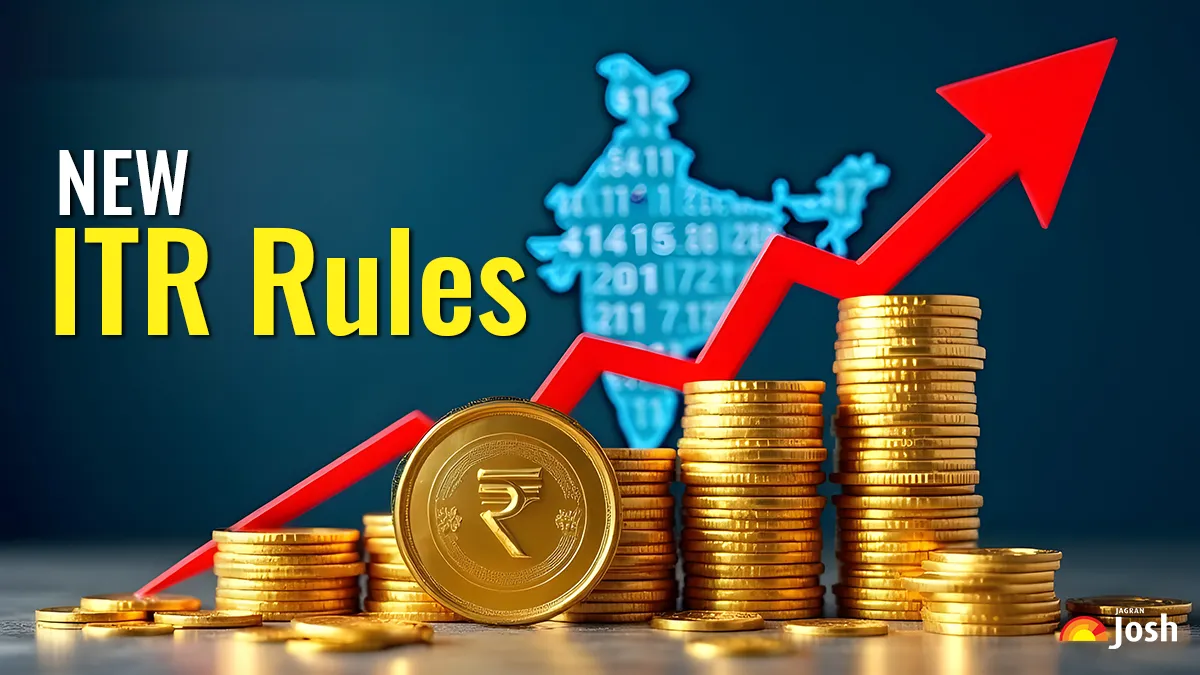More than 60 lakh Income Tax Returns (ITRs) have been filed so far for the fiscal year 2024–2025 (Assessment Year 2025–26). Data from the Income Tax Department's website shows that about 1 lakh returns have been processed. This year, the agency has introduced new ITR scrutiny guidelines. According to tax specialists, tax authorities have been instructed to step up their efforts to combat tax evasion, and data analytics is their most effective tool for doing so.
Investigations are currently being conducted by connecting the taxpayers' bank accounts, spending patterns, investment patterns, and claimed income. People who spend large sums of money on premium brands, real estate, or international vacations, yet whose bank accounts indicate few cash transactions, are given special consideration.
Why the Need for New ITR Rules?
Reports state that the Income Tax Department is also notifying those whose bank account balances are relatively low but whose expenses are well-known. According to specialists, the government is currently looking into these "mismatch" cases more thoroughly, where the individual has a lower income on their tax return but is spending a lot of money on expenses.
Investments in real estate, mutual funds, gold purchases, and travel are all being examined in light of these facts. The tax department no longer believes that only large corporations or businesspeople avoid paying taxes. According to sources, the attention is now also on ordinary individuals who appear to have lower incomes yet lead "high-standard" lives.
What are the new ITR Scrutiny Rules?
In some situations, an investigation will be conducted under the new scrutiny guidelines that the Income Tax Department released for FY 2025–2026. The primary grounds are as follows:
CS01: Examining tax survey situations
Your ITR will be examined if a survey was completed in accordance with section 133A.
CS02 and CS03: Cases involving searches and seizures
Special scrutiny will be applied to all ITRs of individuals whose tax raids or papers were seized between April 1, 2023, and March 31, 2025.
CS05: Recurring instances of unreported income
Your subsequent return will be subject to an examination if you have previously concealed a sizable income and failed to disclose it. The cap is Rs 20 lakh in non-metropolitan areas and Rs 50 lakh in metro areas.
CS06: Upon getting data from ED or CBI
A taxpayer's return will be examined if the CBI, ED, or other agencies provide any information against them.
Tips for Taxpayers
Follow these tips in order to avoid any unnecessary scrutiny from the Income Tax department:
-
Verify that your bank statements, AIS, and Form 26AS match.
-
Honestly disclose all of your revenue, no matter how modest.
-
Maintain a thorough record of all monetary transactions if you are in business.
-
If you have costly hobbies, you should also disclose your source of revenue.
The Income Tax Department is no longer willing to accept any "disconnect" in light of new technology, data analytics, and stringent regulations. Your ITR may be scrutinized if there is a discrepancy between your reported income and expenses. Taxes should be paid now in a transparent manner; otherwise, a notice will be sent.

Comments
All Comments (0)
Join the conversation